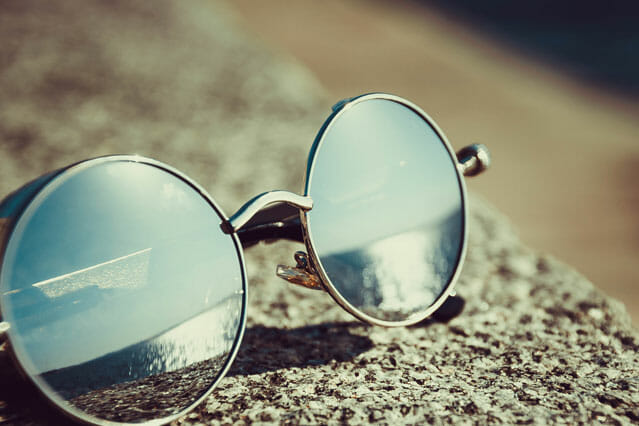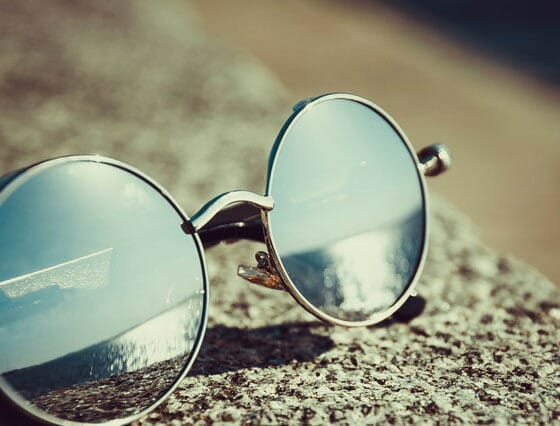What Cheap Sunglasses Are Missing and Answers to Common Eye-Related Questions

As summer draws to a close but the sun is nowhere near disappearing from the sky, many of us turn to our sunglasses every day for some degree of protection from harmful UV rays. If you don’t wear prescription sunglasses, or shades that you spent a pretty penny on, are your eyes still safe with cheap, store-bought sunglasses?
You may have always heard that cheap sunglasses are bad for your eyes, but wondered if it was true. Further, what is it about more expensive sunglasses, beyond the designer label, that makes them more valuable when it comes to protecting your vision?
There are so many myths and superstitions about common eye facts, it can be hard to see the light. For example, do carrots really help a person to see better? Can reading in the dark damage your eyes? In this article, we break down a few of the more common eye-related myths for you. Read on for our easy-to-understand answers to some frequently asked eye questions.
Will Cheap Sunglasses Hurt My Eyes?
In short, the answer is yes – that is, if they don’t block harmful UV rays, according to Dr. Wayne Bizer, eye doctor and spokesman for the American Academy of Ophthalmology. When we walk out into sunlight we squint our eyes, and our pupils contract to “tiny dots—as small as half a millimeter in diameter,” this restricts the amount of light getting in and protects the eye.
If instead you put on dark sunglasses that don’t have UV protection, the pupil opens dramatically to allow more light in. This in turn exposes you to nearly 10 times the amount of light you would be getting normally. Increased exposure to UV light can increase the risk of “cataracts, macular degeneration and even development of ocular melanoma.”
For more tips from the American Academy of Ophthalmology on how to select the right pair of sunglasses that will protect your precious eyes, click here.
Will Eating Carrots Help Me See Better?
The short answer, again, is – sort of. Carrots are rich in beta-carotene, which the body uses to create Vitamin A, and Vitamin A has been shown to help people see better at night. But in a Scientific American study that stacks carrots and other foods high in Vitamin A against Vitamin A supplements, the supplements were always found to be more effective.
Further, once the body has sufficient amounts of beta-carotene, it self-regulates. That means the benefit that you gain from Vitamin A will plateau, so after that point, you can give up any plans for super human eye strength.
Don’t stop eating carrots by any means, and if you’re looking to improve your vision, some people have found eye exercises to be a helpful tool. You can learn more about what kinds of eye exercises work to improve vision, here.
Does Reading in the Dark Damage Your Eyes?
While it may cause discomfort, headaches, and eyestrain, reading in the dark will probably not cause any actual damage to your eyes. According to most experts, family history is a much more likely indicator of eye health. One must also take into account the normal decline of vision as the body ages.
Interested in knowing about even more eye-related myths and whether or not they’re true? ABC News has debunked eleven more common ocular myths here.
Protecting Your Eyes Is Key to Lasting Healthy Vision
There are plenty of myths about eye health and safety, but remember, don’t believe everything you read online, and always read the label on your sunglasses. The key to good ocular health begins with an annual eye appointment, so come see us today!

